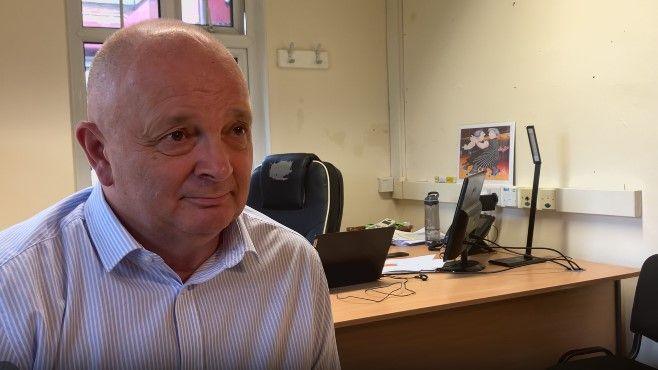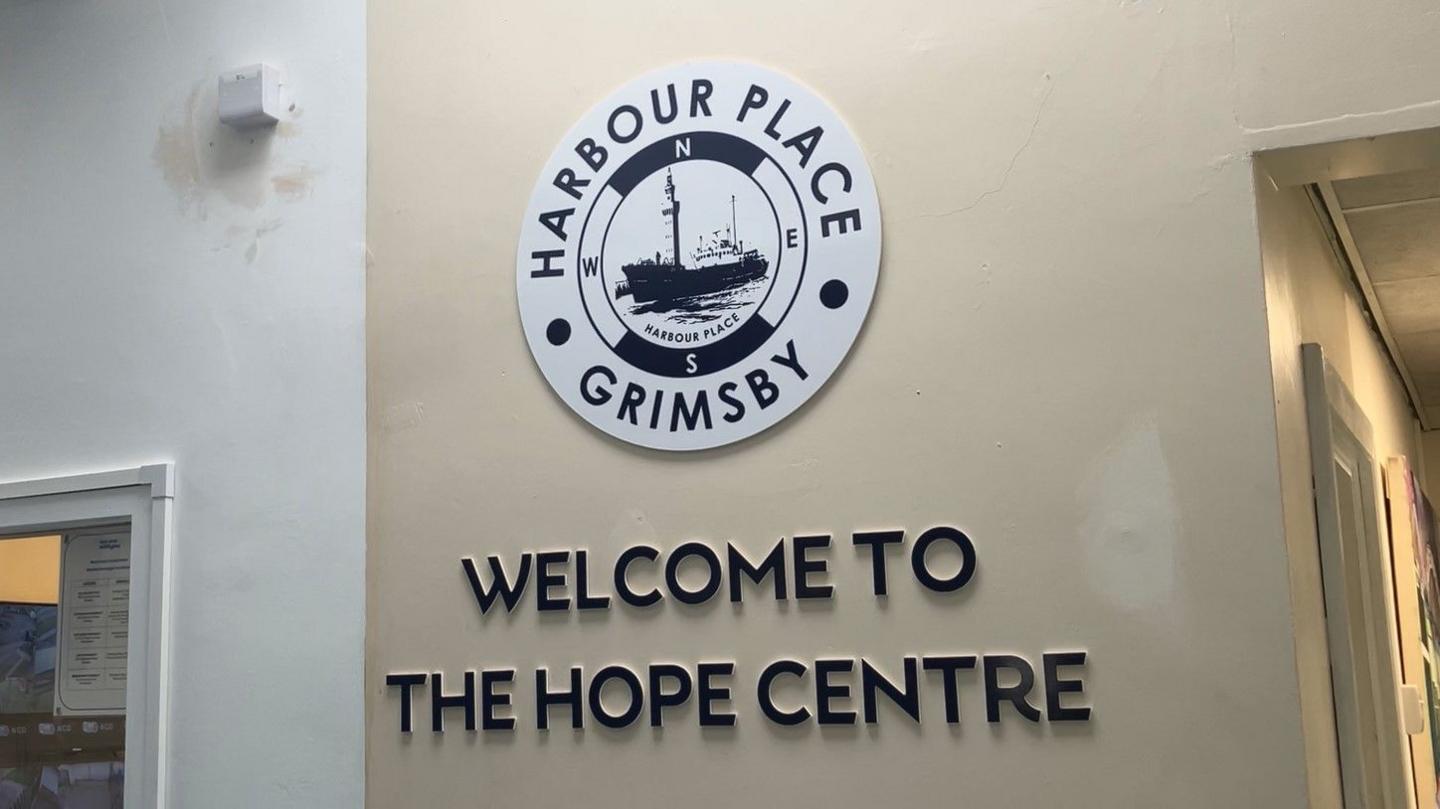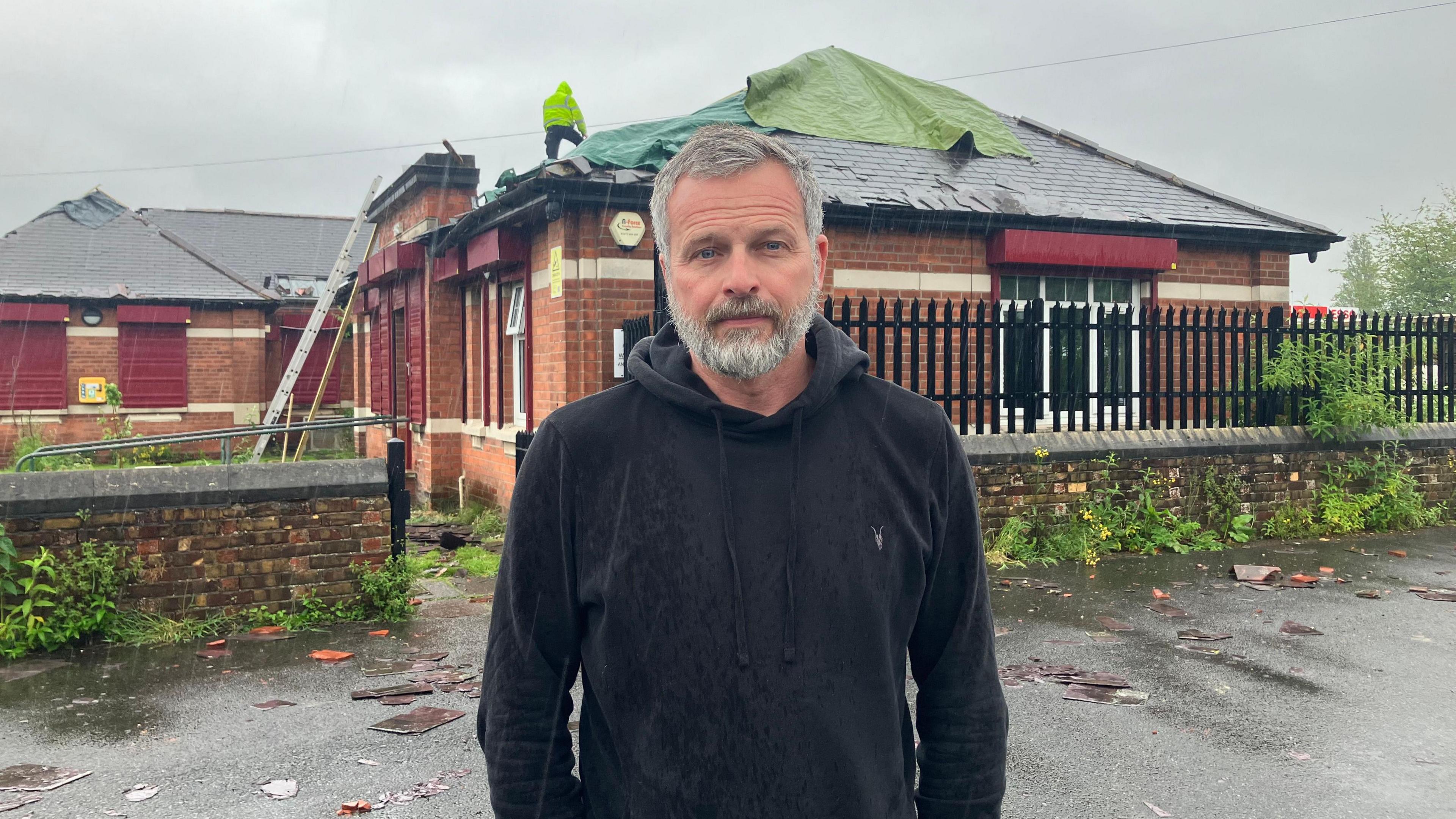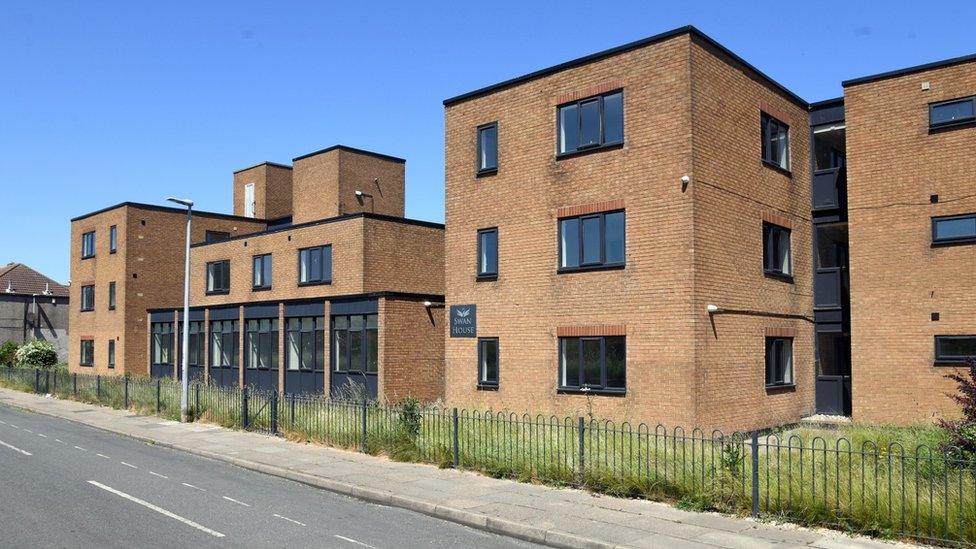Support for prison leavers 'stretched to limit'

Denny Batty, Director of Harbour Place, said shelter accommodation "wasn't the best" for those leaving prison
- Published
Services supporting people leaving prison are already overstretched, the director of a homeless charity in North East Lincolnshire has said.
Denny Batty, from Grimsby's Harbour Place, issued the warning as more than 1,700 prisoners - including about 70 from HMP Humber - were being released early as part of a government scheme to deal with overcrowding.
Mr Batty, who said demand for this kind of service was up 26% around the country, added: “Everywhere, and I repeat everywhere, is stretched to their limit at the moment."
He said that without investment in services for ex-inmates then the cycle of re-offending would occur.
Mr Batty said not everyone who needed accommodation would be able to be get a place, with shelters having to prioritise those most in need, leaving former prisoners on waiting lists.
“We’re inundated at the moment, we have more demand on services all the time.” he told the BBC.
Prisoners released as part of the early release scheme who found themselves homeless could be placed in "budget hotels" as a temporary measure, Justice Secretary Shabana Mahmood said.
"If an offender is at risk of homelessness upon release they will be housed in community accommodation, and we expect to provide housing for the majority of offenders, using existing provision," she said.
"But should there not be enough provision, I have authorised probation directors to make use of alternative arrangements including budget hotels as a temporary measure, for the cases that we will see in the next few weeks."

Harbour Place has been supporting homeless people since 1996, and opened its shelter in 2018
Mr Batty said temporary shelter accommodation, which houses people for only six weeks, was not the best place for people wanting to “start building a new life”.
“It’s really hard to start new habits, and maintain the hope you need, you have to leave a lot of people behind, have a whole new friendship group," he said.
With services working "to capacity", he said it was difficult to find the time to provide the in-depth support needed for rehabilitation and those with "real trauma" were not able to move on if they only had "a couple of conversations" with support services.
He added: "Even with the best will of everyone inside prison and outside prison trying to make sure there’s accommodation, there is a shortage of accommodation.
"We’ve a shortage of the services that help people to succeed, and there’s also a shortage of the time it takes to build trust with somebody."
Listen to highlights from Lincolnshire on BBC Sounds, watch the latest episode of Look North or tell us about a story you think we should be covering here, external.
- Published23 May 2024

- Published15 December 2023

- Published7 August 2024
